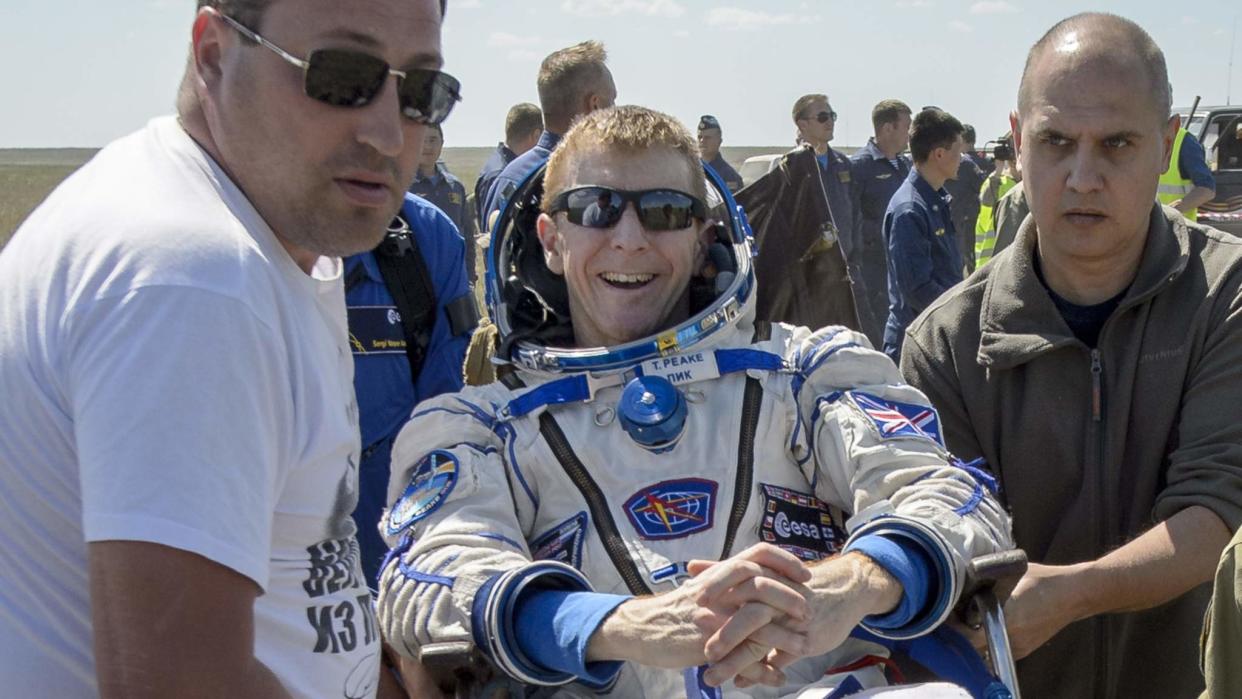Tim Peake's Long Path To Post-Orbit Recovery

Sky News has been given rare access to the aerospace medical unit where Tim Peake is recovering from his six months in orbit.
The British astronaut will spend up to three weeks in the German Space Agency's futuristic unit in Cologne.
I was shown the minimalist apartment where Major Peake will live while doctors keep a close eye on his health and scientists use him as a guinea pig for a series of experiments.
His wife Rebecca and sons Thomas and Oliver will be able to stay with him.
He will be able to have his first proper shower in six months. And he will be allowed to eat and drink what he wants, a change from the limited space food menu on board the International Space Station.
The crew surgeon will be available within seconds if Maj Peake suffers any complications from his return to Earth.
Microgravity weakens bones and muscles. And the amount of blood in Maj Peake's body will have reduced by around a pint while he has been in space, putting unpredictable stresses on his heart.
Stefan Ghiste, of the European Space Agency's 'Direct Return Project', is responsible for Maj Peake's swift return from Kazakhstan and subsequent rehabilitation.
"The trip back to Earth, the three hours in the capsule, is hectic," he said.
"You never know what the situation is with his body adapting to gravity."
Maj Peake has spent two and a half hours a day on board the ISS lifting weights and exercising on a microgravity treadmill.
I was allowed to use a 'vertical treadmill' that scientists use to understand better how muscles cope without gravity pulling blood down into the legs.
I had to be suspended, lying on my back, from strings, while elastic bungees pulled me towards the moving belt.
Maj Peake has been doing 23 tests on his body while in space. They will be compared to results gathered from identical tests on Earth.
He will also be put on a 'tilt table' a device that can swiftly rotate him for a horizontal to a vertical position to see how his heart and blood circulation cope with gravity once more.
Edwin Muller, scientist for the astronaut return programme for the German Space Agency, said: "Your cardiovascular system has to work much harder after spaceflight than before.
"With reduced sensitivities and reflexes, you have to maintain an upright posture.
"It's quite a daunting task for the human body."
But it's not just Maj Peake's physical recovery that scientists will be monitoring.
Experts are aware that the long period without proper contact with friends and family can be psychologically gruelling - and the sudden reunion can be hard
"There is no training for that. It is just a question of emotion," said Mr Ghiste.
"In the first hours we give the astronaut the chance to spend some time with his family privately.
"This is something we want to protect. Nobody will interrupt."

 Yahoo News
Yahoo News 
